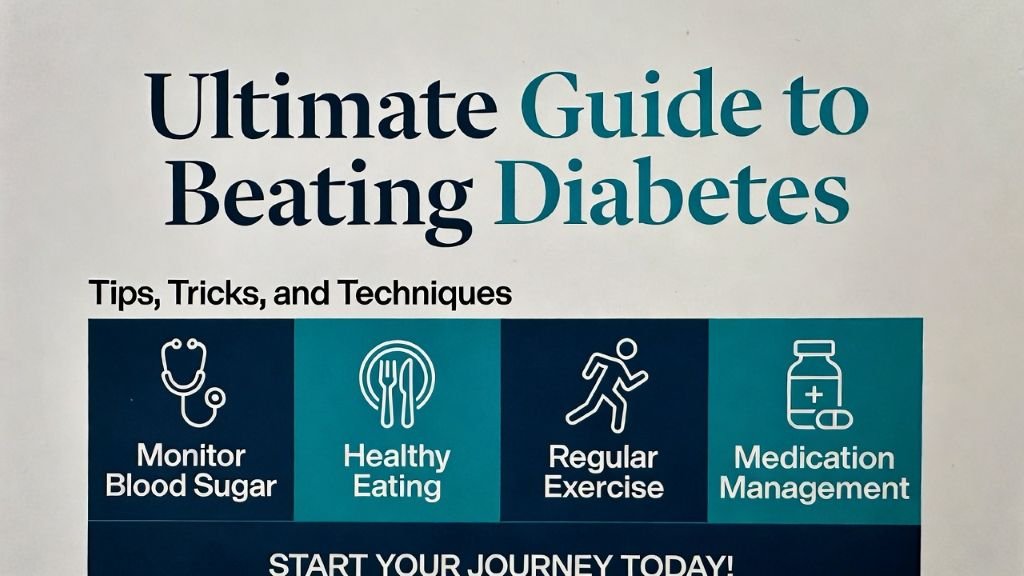Nutrition goals are essential for anyone aiming to improve their health and well-being. These goals act as a roadmap, guiding you towards healthier eating habits and lifestyle changes. Setting nutrition goals involves understanding what you want to achieve, whether it’s weight loss, muscle gain, or simply maintaining a healthy diet.
To begin, it’s crucial to have a clear vision of your desired outcome. Are you looking to lower cholesterol, boost energy levels, or perhaps manage a specific health condition like diabetes or hypertension? Identifying your primary objective will help you tailor your goals to suit your individual needs. Remember, nutrition goals are not one-size-fits-all; they should be personalized to match your lifestyle and health requirements.
Additionally, it’s important to differentiate between short-term and long-term goals. Short-term goals are more immediate and often serve as stepping stones to your larger aspirations. For instance, committing to eating one more serving of vegetables per day is a manageable short-term goal that can lead to significant long-term health benefits.
The Importance of Setting Realistic Goals
Setting realistic goals is paramount in ensuring success in your nutrition journey. Unrealistic goals can lead to frustration and demotivation, causing many to abandon their health plans altogether. Realistic goals, on the other hand, are attainable and provide a sense of accomplishment, motivating you to continue on your path toward a sustainable body transformation.
One way to ensure your goals are realistic is to apply the SMART criteria: Specific, Measurable, Achievable, Relevant, and Time-bound. For example, instead of setting a vague goal like “eat healthier,” specify what that means by saying, “I will eat at least five servings of fruits and vegetables each day.” This clarity helps you monitor your progress effectively.
Moreover, realistic goals should align with your current lifestyle and limitations. If you have a busy schedule, setting a goal to cook a fresh meal every night may not be feasible. Instead, aim for preparing meals ahead of time or choosing healthier options when dining out, or incorporating nutrition supplements to help meet your dietary needs. This approach increases your chances of success and helps sustain your motivation.
How to Assess Your Current Eating Habits
Before setting nutrition goals, it’s vital to assess your current eating habits. This evaluation provides a baseline from which you can measure progress and identify areas for improvement. Start by keeping a food diary for a week, noting everything you eat and drink, along with portion sizes and meal times.
Once you’ve gathered this information, analyze your dietary patterns. Are there specific times you tend to overeat? Do you consume a lot of processed foods or sugary snacks? Identifying these habits helps pinpoint where changes are needed. You might notice, for example, that you skip breakfast frequently or consume more calories than necessary from late-night snacking, situations where some individuals consider incorporating a fat burner as part of a broader weight management strategy.
Consider also the nutritional quality of your diet. Are you getting enough essential nutrients like fiber, protein, vitamins, and minerals? Use tools like the MyPlate Plan or consult with a nutritionist to understand whether your diet aligns with recommended dietary guidelines. By understanding your current habits, you can set more informed and effective nutrition goals.
Key Components of a Balanced Diet
A balanced diet is a cornerstone of good health and is essential for achieving your nutrition goals. It involves consuming a variety of foods in the right proportions to provide your body with the necessary nutrients. A well-rounded diet includes:
- Fruits and Vegetables: These should make up about half your plate at each meal. They provide essential vitamins, minerals, and fiber.
- Whole Grains: Opt for whole grains like brown rice, quinoa, and whole wheat bread, which are richer in nutrients compared to refined grains.
- Protein: Include a variety of protein sources such as lean meats, fish, eggs, beans, and nuts.
- Dairy or Dairy Alternatives: Choose low-fat or fat-free options to reduce saturated fat intake.
- Healthy Fats: Incorporate sources of unsaturated fats like avocados, olive oil, and fatty fish.
In addition to these components, limit the intake of added sugars, sodium, and saturated fats. Maintaining a balance helps prevent nutritional deficiencies and promotes overall health. Remember, moderation is key; even healthy foods can be detrimental if consumed in excess.
Strategies for Setting Achievable Nutrition Goals
Setting achievable nutrition goals requires strategic planning and a realistic approach. Here are some strategies to consider:
- Start Small: Begin with manageable changes, such as adding a fruit to your breakfast or replacing sugary drinks with water. Small steps lead to big results over time.
- Prioritize Your Goals: Focus on one or two goals at a time to avoid feeling overwhelmed. Once you achieve these, you can move on to new challenges.
- Be Flexible: Life is unpredictable, and so are our eating habits. Allow yourself some flexibility to accommodate changes in your routine without feeling guilty.
- Set Specific Goals: Clearly define what you want to achieve. Instead of saying, “I will eat healthier,” specify, “I will reduce my fast food intake to once a week.”
- Track Your Progress: Use apps or journals to monitor your progress. Seeing improvements can be incredibly motivating and help you stay on track.
Implementing these strategies will not only make your nutrition goals more attainable but also more sustainable in the long run.
Tips for Tracking Your Progress
Tracking progress is an integral part of achieving your nutrition goals. It allows you to see how far you’ve come and identify areas that need adjustment. Here are some tips for effective tracking:
- Use Technology: Take advantage of apps and online tools that track your food intake and nutritional information. These platforms often provide insights and suggestions for improvement.
- Keep a Journal: If you prefer a more hands-on approach, maintain a food journal. Document what you eat, how you feel, and any challenges you encounter.
- Set Milestones: Break your larger goals into smaller milestones. Celebrate these achievements as they occur to maintain motivation.
Regularly reviewing your progress helps reinforce positive behavior and keeps your goals in sight. It’s also an opportunity to reassess your approach and make necessary changes if you’re not seeing the desired results.
Overcoming Common Challenges in Sticking to Nutrition Goals
Sticking to nutrition goals can be challenging, but understanding common obstacles can help you overcome them. One prevalent issue is time constraints. Busy schedules often lead to poor food choices. To combat this, try meal prepping or choosing quick, healthy snacks like nuts or yogurt.
Another common challenge is social pressure. Dining out with friends or attending gatherings can tempt you to stray from your goals. Prepare by reviewing menus in advance or suggesting healthier venues. Remember, it’s okay to indulge occasionally; balance is key.
Lastly, emotional eating can derail your progress. Stress, boredom, or sadness may lead to overeating or choosing unhealthy foods. Develop coping strategies such as exercise, meditation, or speaking with a friend to manage emotions without turning to food.
The Role of Support Systems in Achieving Nutrition Goals
Support systems play a crucial role in helping you achieve your nutrition goals. Whether it’s friends, family, or a professional, having someone to lean on can make a significant difference.
- Family and Friends: Share your goals with those close to you. They can offer encouragement, join you in healthy activities, or even partake in meal prepping sessions.
- Professional Guidance: Nutritionists or dietitians provide expert advice tailored to your needs. They can help you navigate challenges and make informed dietary choices.
- Online Communities: Engage with online forums or social media groups dedicated to health and nutrition. These communities offer a wealth of knowledge and support from like-minded individuals.
A strong support system provides accountability, encouragement, and motivation, making it easier to stay committed to your nutrition goals.
Adapting Your Nutrition Goals over Time
As you progress in your health journey, it’s important to adapt your nutrition goals to reflect changes in your lifestyle, preferences, and health needs. Re-evaluating your goals ensures they remain relevant and effective.
Start by assessing your achievements and any areas where you may have struggled. Celebrate your successes and use them as a foundation for setting new goals. For instance, if you’ve successfully increased your vegetable intake, consider focusing on reducing sugar consumption next.
Life changes, such as a new job or family responsibilities, may also necessitate adjustments to your goals. Be open to modifying your approach to suit your current circumstances. Flexibility is key to maintaining a sustainable and enjoyable health journey.
Conclusion: The Journey to Better Health
Embarking on a journey to better health through nutrition is rewarding yet challenging. By setting realistic goals, assessing your eating habits, and understanding the components of a balanced diet, you lay a strong foundation for success. Remember to track your progress, overcome obstacles, and leverage support systems to stay on track.
As you achieve your goals, reassess and adapt them to continue your progress. The journey to better health is ongoing, requiring commitment and patience. Celebrate each milestone and embrace the changes you make along the way.
Please review our business on Google Yelp Facebook
Please visit our Member’s Area to access 100’s of health and fitness topics.
Did you know you can work out and exercise with a trainer at your home, office, hotel room, or anywhere in the world with online personal training?
Like us on Facebook/Connect with us on LinkedIn/Follow us on X
Make sure to forward this to friends and followers!






